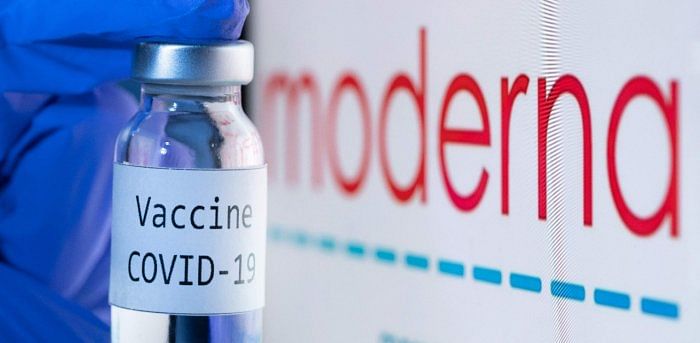
A top official of Operation Warp Speed floated a new idea Sunday for stretching the limited number of Covid-19 vaccine doses in the United States: halving the dose of each shot of Moderna’s vaccine to potentially double the number of people who could receive it.
Data from Moderna’s clinical trials demonstrated that people between the ages of 18 and 55 who received two 50-microgram doses showed an “identical immune response” to the standard of two 100-microgram doses, said the official, Dr Moncef Slaoui.
Slaoui said that Operation Warp Speed was in discussions with the Food and Drug Administration and the pharmaceutical company Moderna over implementing the half-dose regimen. Moderna did not respond immediately to a request for comment.
Each vaccine would still be delivered in two, on-schedule doses four weeks apart, Slaoui said in an interview with “CBS’ Face the Nation.” He said it would be up to the FDA to decide whether to move forward with the plan.
Ray Jordan, a spokesperson for Moderna, did not comment on Slaoui’s proposal, but noted that Moderna’s late-stage clinical trials focused on a regimen of two doses of 100 micrograms of vaccine apiece, spaced four weeks apart. This was the same schedule and dosing that earned the vaccine its emergency green light from the Food and Drug Administration last month.
Slaoui was asked whether the United States would follow Britain’s lead on another tactic for getting shots to more people: delaying second doses of newly authorized vaccines to immunize a larger swath of the population. There is little or no data on dose delays, Slaoui said, but “injecting half the volume” might constitute “a more responsible approach that will be based on facts and data to immunize more people.”
Natalie Dean, a biostatistician at the University of Florida, agreed that there might be more data to support a vaccine strategy that relied on half-doses rather than delayed doses.
“There is a path forward if you can show that two lower doses yield a similar immune response,” Dean said.
As caseloads continue to surge upward around the globe, and concerns mount over a new and potentially more transmissible variant of the coronavirus, “everyone is looking for solutions right now, because there is an urgent need for more doses,” Dean added. “But the dust has not settled on the best way to achieve this.”
John Moore, a vaccine expert at Cornell University, pointed out that the approach wouldn’t necessarily work for all vaccines. Injections are already doled out in very small volumes, and some might be harder to halve than others, he noted.
While Moore agreed that halving doses has more scientific backing than dose delays, he noted that “this is not something I would want to see done unless it were absolutely necessary.”